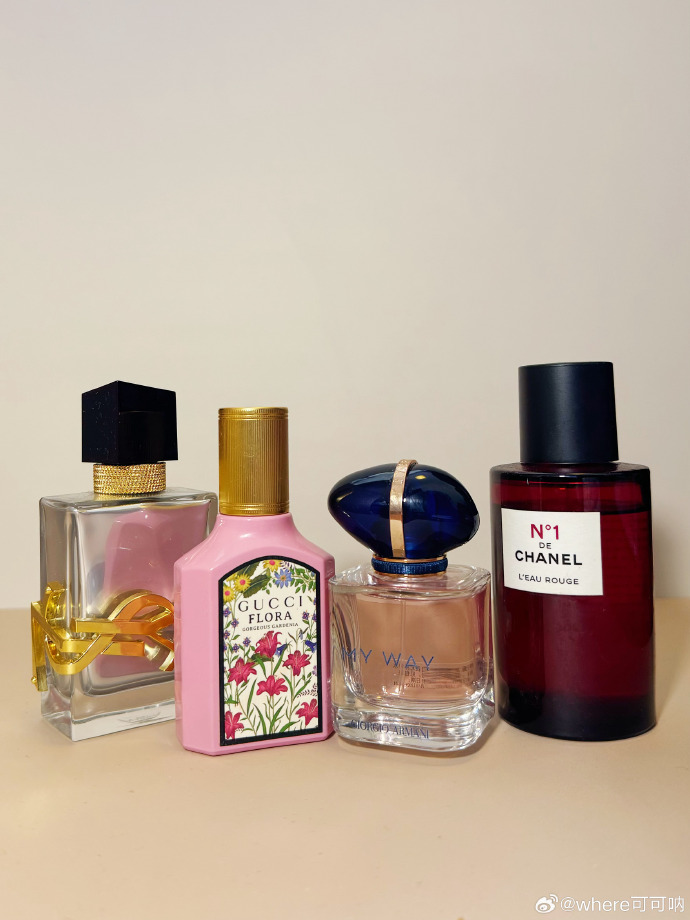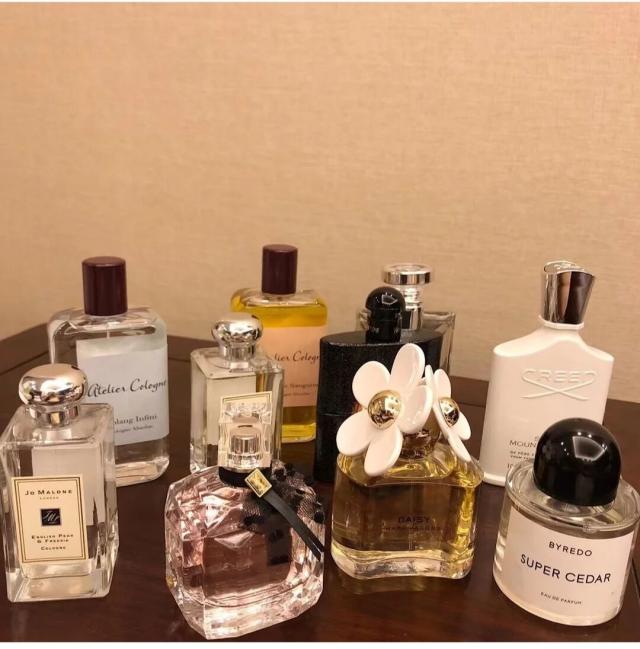Perfume dupes, also known as “inspired-by” or “imitation” fragrances, have grown in popularity as affordable alternatives to luxury perfumes. These fragrances mirror the scent profile of designer brands without the high price tag. But are they legal? This article explores the legal landscape surrounding perfume dupes in the US, discussing the distinction between duplication and counterfeiting, intellectual property laws, and the reasons fragrance formulas are not protected by copyright.
Understanding Perfume Dupes: What Are They?

Defining Perfume Dupes
Perfume dupes are fragrances created to resemble well-known designer perfumes without claiming to be the original product. These alternatives do not copy branding, logos, or trademarks, but focus on delivering a similar scent experience at a lower cost. Unlike counterfeits, which aim to deceive consumers, dupes clearly position themselves as “inspired by” versions.
Why Perfume Dupes Are So Popular in the US
The demand for affordable alternatives to luxury fragrances is growing in the US. Perfume dupes provide a way for consumers to experience the essence of designer scents without breaking the bank. They cater to consumers who appreciate luxury scents but seek budget-friendly options for daily use.
- Affordability: Dupes offer high-end scent experiences at a fraction of the cost.
- Accessibility: Available widely through online platforms, dupes are easy to acquire and provide variety.
- Sustainability: Some brands producing dupes prioritize sustainable practices and eco-friendly packaging.
Are Perfume Dupes Legal?
The Legal Distinction: Dupes vs. Counterfeits
A critical distinction exists between dupes and counterfeits. Counterfeit perfumes attempt to mimic not only the scent but also the branding, packaging, and labeling of the original product to deceive consumers. Dupes, however, avoid direct branding and trademark infringement, focusing solely on replicating the scent profile.
- Counterfeits: Illegal copies designed to deceive consumers, often resulting in legal actions.
- Dupes: Legal as long as they do not use protected branding or trademarks.
Intellectual Property and Perfume Dupes
In the US, intellectual property laws protect trademarks, patents, and copyrights. However, fragrance formulas themselves are not protected by copyright due to their intangible nature. This lack of protection is one reason why it is legal to produce and sell imitation scents that closely resemble luxury fragrances.
Trademarks in the Fragrance Industry
Perfume brands use trademarks to protect their brand names, logos, and unique packaging. Dupes that avoid using these protected elements can legally position themselves as “inspired-by” fragrances without infringing on intellectual property rights.
Copyright Limitations on Fragrance Formulas
Copyright law protects original creative works, such as literature, music, and art. However, fragrance formulas, being combinations of molecules without unique physical expression, are not copyrightable. This legal stance allows other manufacturers to replicate scent profiles as long as they do not infringe on trademarks or branding elements.
Table 1: Key Differences Between Perfume Dupes and Counterfeits
| Aspect | Perfume Dupes | Counterfeits |
|---|---|---|
| Intent | Provide similar scents at lower cost | Deceive consumers as if it’s the original |
| Branding | No use of original branding or trademarks | Copies logos, packaging, and branding |
| Legality | Legal if trademarks are respected | Illegal, violates trademark laws |
Patent Challenges in the Fragrance Industry
While patents can protect unique processes or technologies, they are rarely applicable to fragrance compositions themselves. Some perfume brands may patent novel extraction methods or delivery systems, but duplicating a fragrance’s scent alone does not typically infringe on patent rights.
How Are Perfume Dupes Created?
Scent Analysis and Formulation
To create a perfume dupe, perfumers analyze the original fragrance to identify its top, middle, and base notes. By studying these components, they can recreate a similar scent profile using synthetic or alternative ingredients.
- Top Notes: The initial impression of the fragrance, often light and fresh.
- Heart Notes: The core of the scent, which defines the fragrance’s character.
- Base Notes: The long-lasting foundation that gives depth to the fragrance.
Blending and Testing
After identifying key notes, perfumers blend aroma chemicals and essential oils to replicate the original scent. The blend is tested and refined to ensure it closely matches the designer fragrance. This process requires expertise in both chemistry and artistry to achieve a convincing result.
Table 2: Steps in Creating a Perfume Dupe
| Step | Description |
|---|---|
| Scent Analysis | Identifying key notes of the original fragrance |
| Ingredient Selection | Choosing aroma chemicals and essential oils |
| Blending | Mixing ingredients to replicate the scent profile |
| Testing & Refinement | Adjusting proportions for accuracy |
The Consumer Appeal of Perfume Dupes in the USA
Perfume dupes have captured the attention of consumers in the US for several reasons:
- Economic Appeal: Dupes allow consumers to enjoy luxury-inspired scents at an affordable price, democratizing the experience of high-end fragrance.
- Exploration of Scents: Dupes make it possible for consumers to explore a variety of scents without committing to the high cost of full-sized designer bottles.
- Ethical and Sustainable Choices: Some dupe brands focus on ethical production methods, using eco-friendly ingredients and recyclable packaging, making them appealing to eco-conscious consumers.
Why Consumers Choose Perfume Dupes Over Designer Scents

Imitation perfumes or dupes are popular for several reasons beyond affordability, and their appeal goes beyond mere cost-saving. In the US, consumers increasingly view dupes as a smart choice due to the following factors:
- Accessible Luxury: Perfume dupes allow people to enjoy the essence of high-end fragrances without the financial burden. This is particularly appealing in a culture that values both luxury and practicality. By opting for dupes, fragrance lovers can experience the appeal of designer scents within a reasonable budget.
- Daily Wearability: Many consumers prefer to reserve high-end perfumes for special occasions and use dupes for everyday wear. This provides an affordable way to maintain a consistent scent without depleting an expensive bottle too quickly.
- Experimentation with New Scents: Perfume dupes enable consumers to experiment with various scents, finding what best suits their preferences. Given the price difference, they can try several options and even layer different dupes to create unique, personalized fragrances.
- Sustainability and Eco-Consciousness: Some dupe brands emphasize sustainability, using eco-friendly production methods and recyclable packaging. This is appealing to the environmentally conscious consumer who seeks luxury experiences with minimal environmental impact.
Commonly Asked Questions About Perfume Dupes and Their Legality
The legality and ethics of perfume dupes remain a common topic of curiosity, especially in markets like the US where intellectual property laws are stringent. Here are answers to some frequently asked questions to clarify the legal landscape of perfume dupes:
FAQ
Are perfume dupes illegal in the US?
No, perfume dupes are generally not illegal in the US as long as they do not violate trademark or branding laws. Dupes that avoid using logos, brand names, or identical packaging are legally sold as “inspired by” or imitation scents, focusing solely on scent similarity rather than brand identity.
Can fragrance formulas be copyrighted?
No, fragrance formulas are not protected by copyright in the US. Copyright law typically applies to works that can be visually or audibly represented, like art or literature. Since fragrances are composed of molecular formulas that lack a concrete physical representation, they fall outside of copyright protection.
Are imitation perfumes as good as the original designer brands?
High-quality imitation perfumes can offer a similar scent profile to designer fragrances, though they may vary slightly in longevity, complexity, and depth. While they are generally more affordable, some consumers may notice subtle differences in the scent evolution over time.
Do perfume dupes have the same longevity as designer fragrances?
Not always. Many dupes use lower concentrations of fragrance oils compared to designer brands, which may affect longevity. However, some high-quality dupes are crafted to last several hours and can provide good value for daily wear.
Is it safe to wear perfume dupes?
Yes, reputable dupe brands prioritize safety and use ingredients that are skin-friendly. However, as with all perfumes, those with sensitive skin should perform a patch test before full application to avoid any potential reactions.
What makes perfume dupes more affordable?
Perfume dupes are more affordable because they avoid costly branding, celebrity endorsements, and premium packaging. They focus primarily on scent replication, which reduces the overall cost of production and allows for a lower retail price.
The Economic and Ethical Impact of Perfume Dupes
How Dupes Drive Healthy Market Competition
Perfume dupes contribute to market competition by making high-end fragrance experiences accessible to a wider audience. This accessibility challenges the exclusivity of designer brands, compelling them to innovate and possibly lower prices to stay competitive. Dupes essentially democratize the perfume industry, providing options for consumers across various economic backgrounds.
Sustainability and Responsible Production
Some brands that specialize in perfume dupes emphasize sustainable practices. This may include using recyclable packaging, environmentally-friendly extraction methods, and ethically sourced ingredients. By making such choices, dupe brands appeal to environmentally conscious consumers who want to enjoy luxury-inspired scents while supporting sustainable practices.
Table 3: Comparing Designer Brands and Perfume Dupes
| Aspect | Designer Brands | Perfume Dupes |
|---|---|---|
| Price Range | Typically high, reflecting luxury status | Lower, making luxury scents more accessible |
| Longevity | Longer-lasting due to higher concentrations | Moderate, may require reapplication |
| Scent Complexity | Richer with nuanced transitions | Similar scent, may lack complexity |
| Environmental Focus | Some brands focus on sustainability | Many dupes prioritize eco-friendly practices |
| Market Appeal | Targeted at high-income consumers | Affordable for a wider range of consumers |
Final Thoughts: Are Perfume Dupes Worth Trying?

Perfume dupes provide an exciting option for fragrance enthusiasts who seek the sophistication of designer scents without the high cost. While they may not always match the full complexity or longevity of high-end perfumes, well-made dupes offer a commendable alternative that balances quality with affordability. For many consumers, the opportunity to explore luxury-inspired scents without a substantial financial commitment makes perfume dupes a worthwhile consideration.
The rise of imitation perfumes also signals a shift in consumer attitudes toward luxury, prioritizing experience over brand names. Whether you’re looking to try a new scent for everyday use or explore the world of fragrance without breaking the bank, perfume dupes open up a world of aromatic possibilities.

